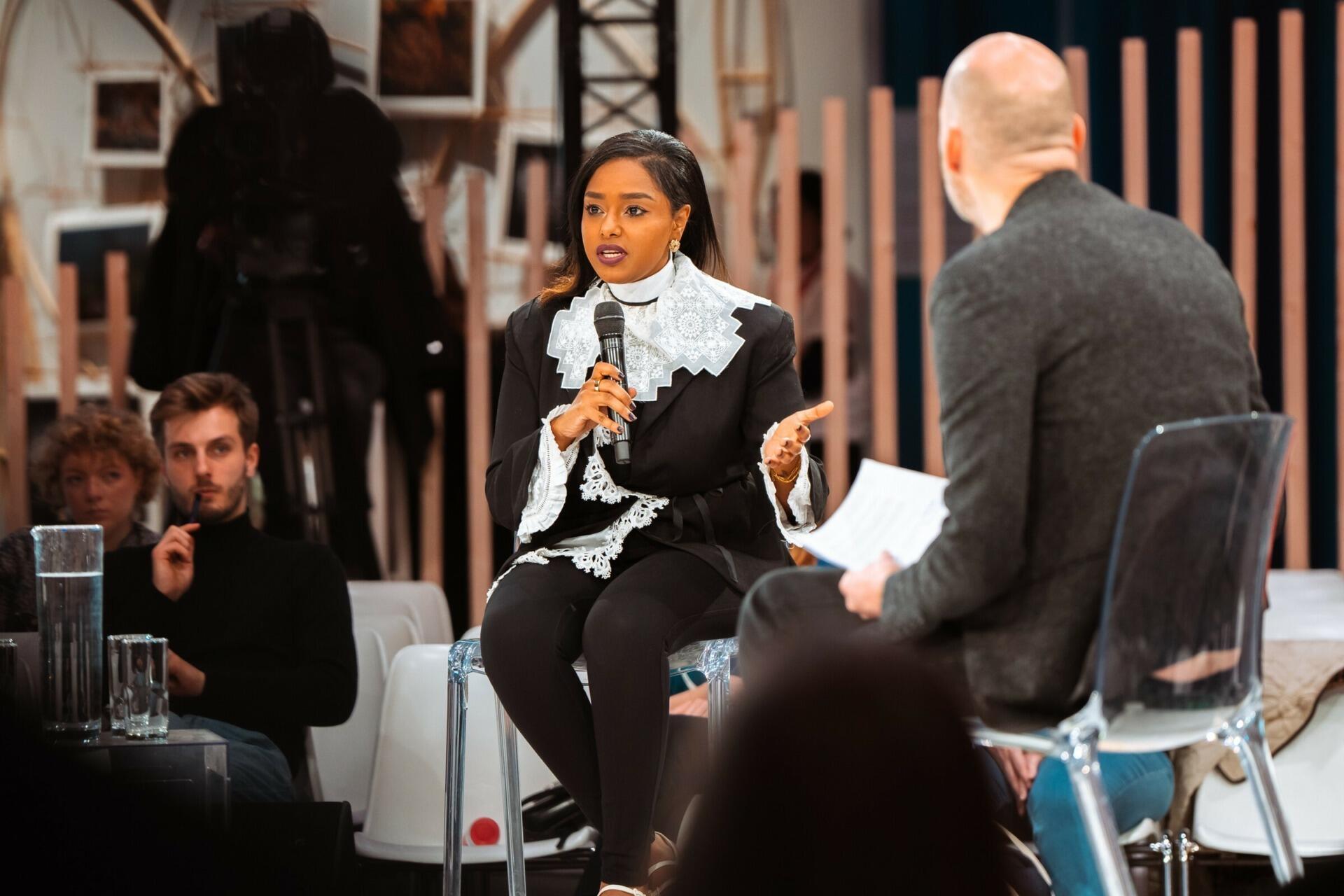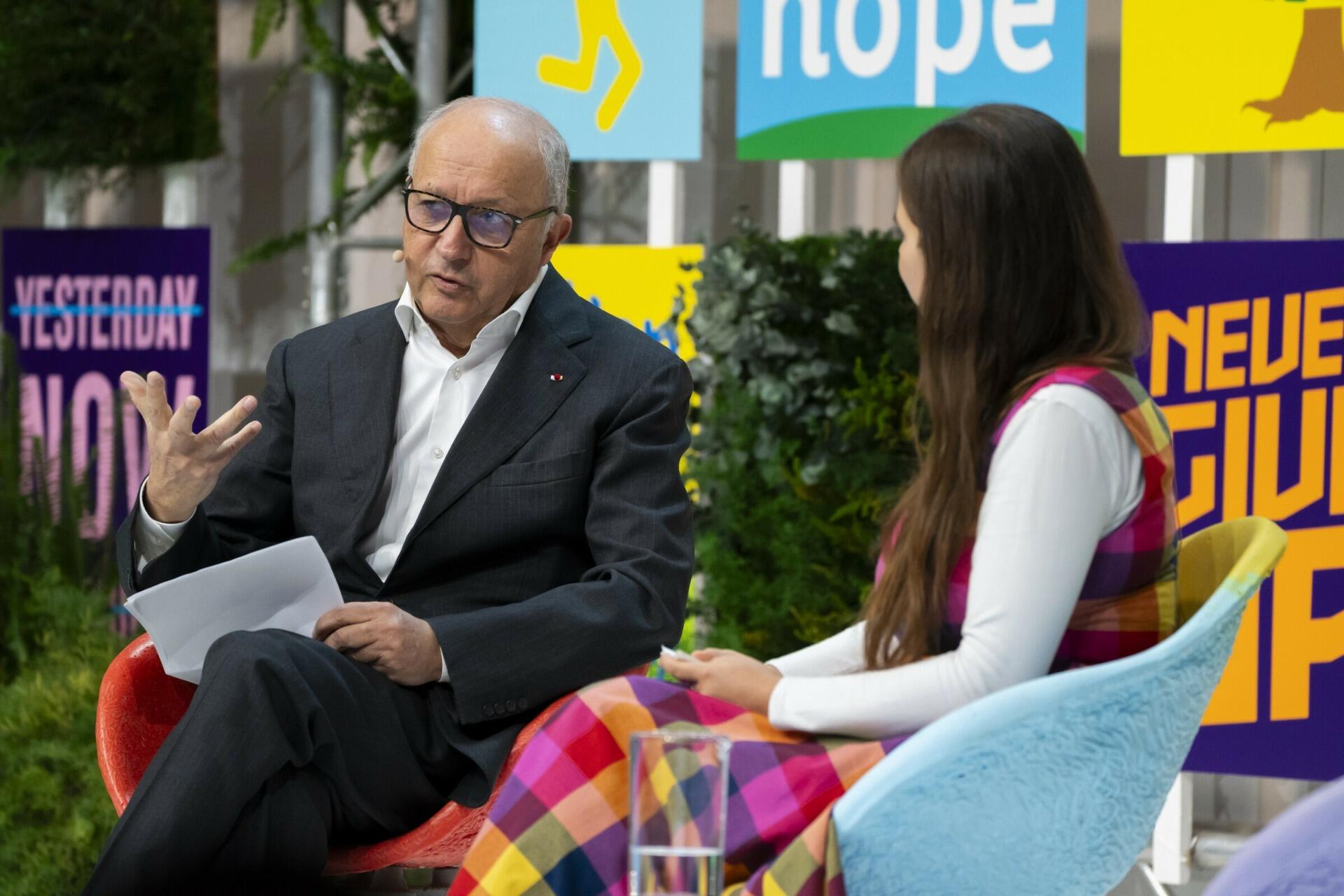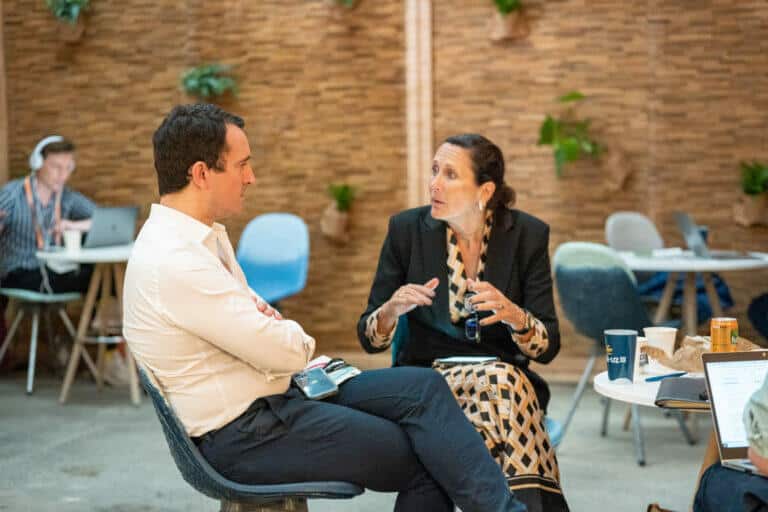Called to the polls: putting the transition center stage
Beyond individuals and borders: the impact of elections

Mayada Adil, Young Leader for SDGs at the United Nations
Information and democracy: less disinformation and more citizen-driven policies
Intergenerational dialogue: the importance of learning to listen
This sentiment was shared in the Taking Care of Future Generations conference. 14-year-old Colombian activist Francisco Vera emphasized that climate change is a pressing issue of the present and past, not just the future, and it concerns everyone. He urged immediate action to protect both the youngest and oldest among us and those yet to come. He also called for “eco-hope,” and encouraged cooperation between generations.
Laurent Fabius, President of the Constitutional Council, echoed his words and noted that “Governments have to be particularly keen on what the young people are saying. It doesn’t mean that it is always right, but it is always meaningful.” He insisted that governance, civil society and science work hand in hand.

Colombian activist Francisco Vera

Laurent Fabius, President of the Constitutional Council
Additional resources to help you better understand this topic:
- Discover BLOOM’s evaluation of the environmental performance of each European party based on four categories: environmental justice, ocean, climate, and biodiversity. Their work reveals how parties vote on key environmental and human protection issues, beyond their campaign promises.
- The Movement 9o6’s Vote Anyway campagne encourages people to vote, regardless of their personal opinions, to uphold this fundamental democratic process. Participating companies can join the movement to share this message on social media.




